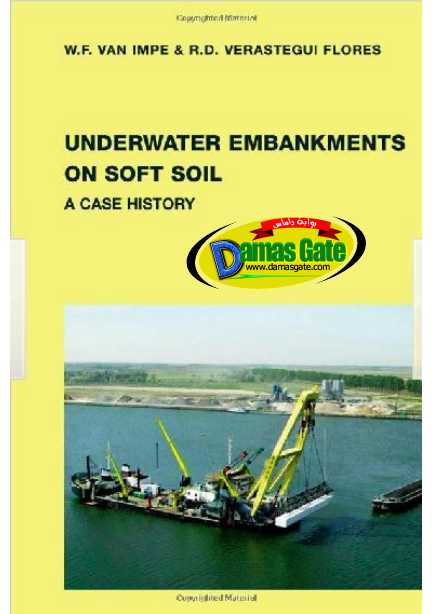Underwater Embankments on Soft Soil - W.F.Van Impe

Preface
Ground improvement is probably the oldest but, from a technical point of
view, still the most intriguing technique of all common execution methods
in foundation engineering. Indeed, ground improvement was already in use
more than 3000 years ago. In recent decades, the modern methods of ground
improvement are making use of explosives, impact energy, thermal treatment
of the soil, vacuum consolidation, vibratory compaction technologies, stabilization
and solidification of soft soils, as well as combined systems of ingenious
grouting systems, deep mixing techniques, etc.
Throughout the world, deep mixing techniques today are of utmost importance
in dealing with more and more demanding foundation problems. This
tendency has been noticed in Belgium already at a very early stage; with
inventive new developments of soft soil deep mixing technologies and various
advanced high pressure mixing methods. Some initial experiences onshore and
offshore have proved already some years ago that successful solutions can be
attained.
The present work illustrates a challenging example of design and construction
of a quite important large underwater embankment on very soft
soil. Throughout the design staged construction and ground improvement by
deep mixing combined with geotextile reinforcement were proposed to assure
the safety as well as allowable deformations of the construction.
The outcome of monitoring excess pore water pressures and displacements
during the construction shows that when taking account of key aspects of
advanced soil stress-strain behavior, it is possible to appropriately model such
complex problem and even to make rather simple attempts to reach some of
the “type A” foundation behavior predictions.
We may expect this work to be recognized as a valuable reference case
history for the geotechnical engineer, both from the academic as well as from
the practitioner’s point of view, in order to contribute to the art of building
on soft soils.
Our acknowledgments go to the contractors DEME and J. DE NUL, to
the teams of geotechnical experts of Dredging International NV, HydroSoil
Download
http://s18.alxa.net/s18/srvs2/02/001...F.Van.Impe.rar